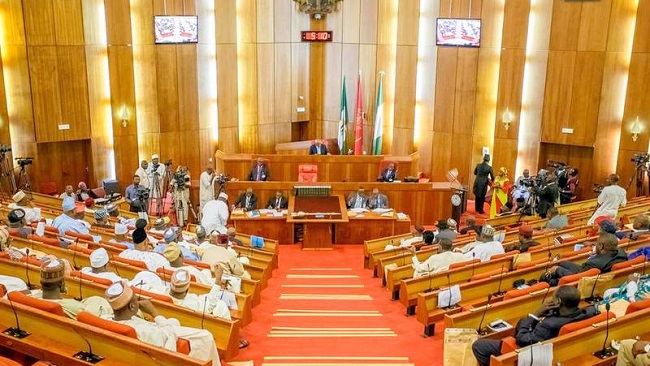A group comprising civil society organisations, researchers, farmers, nutritionists and consumer groups representing millions of Nigerians has called on the Nigerian Senate to proceed with the bill for an amendment of the National Biosafety Management Agency Act (Amended 2019).

This call was made following the public hearing on the bill which held from August 31 to September 1, 2022. The coalition condemns the fact that there was no real representation of CSOs and farmers at the public hearing, and that the amendment to the bill is vital for the protection of Nigeria’s biosafety, genetic/nutritional diversity, the rights of local food producers, and for economic resilience.
Earlier, the group commended the Senate for proposing the amendment bill, noting: “It is a step in the right direction for consumers and especially for small holder farmers who are directly impacted by GMOs and associated chemicals, and yet have little or no knowledge or choice about the entry of these unnatural varieties into our food system or of their potential risks.
“Scientific integrity, social responsibility and accountability are not negotiable, and no technology should be exempted from these values.”
On Friday, September 2, 2022, the Food Farm News reported that some “experts reject biosafety act re-amendment” on the grounds that it would retrogress science and development in Nigeria.
In response to this, the coalition stresses that science and development must align with the country’s realities/context and must pass through the test of safety and sustain-ability. “Anything besides this is an ambush.”
The Director of HOMEF, Nnimmo Bassey, stated that those who are against the bill have demonstrated utter disregard for the environment and the well-being of the people. He emphasised that the bill in its current state is anti-people and does not protect the consumers or farmers’ interest and allows all sorts of genetically modified products into the country with lax regulation.
Akinbode Oluwafemi, Director of Corporate Accountability and Public Participation for Africa (CAPPA), noted that science must be in the interest of the people, the general public and not just a few industry players. Oluwafemi added that having a strict regulation of GMOs in Nigeria means that we can utilise science in a way that is consistent with the standards of biosafety, ethics and good judgement.
The Coordinator of the Food Sovereignty Programme at Friends of the Earth Nigeria and Africa, Mariann Bassey-Orovwuje, noted the lack of strict provision on the Precautionary Principle, the absence of strict liability, the conflicting composition of the board of the NBMA (with the National Biotechnology Development Agency as well other promoters of GMOs on it) and provisions permitting the Agency to receive gifts from various sources are just a few of the gaps in the watered-down NBMA Act that this bill seeks to address.
According to Bassey-Orovwuje, “if the promoters of GMOs are so proud of their products, why do they have such a morbid fear of strict regulation? If the technology is as safe as they claim, then it should meet up with the standards of safety and accountability.”
A molecular biologist, Ifeanyi Casmir, warned that the direction science will take Nigeria with a lax regulatory system is one of disaster and regret.
“We are not against science but those who take advantage of the weak regulatory architecture to mastermind the importation and release of sundry untested and unproven GM products making the country an experimental ground.”
Gloria Okon, leader of a woman farmer group in Katsina, stated that farmers are most affected by GMOs and the implications they bring and thus their interest must be upheld. She applauded the move by the Senate to ensure strict regulation of GMOs and implored that they see it through despite the opposition from the promoters of the technology.
The group encouraged the lawmakers to proceed with the amendment bill and not give up nor give in to pressure from the purveyors of GMOs and accompanying toxic chemicals.
“We need a regulatory system that can assure the country of its biosafety and not just dance to the tune of those it is set up to check or merely imitate other countries whose socio-economic and ecological systems are different from ours,” stated the group.
